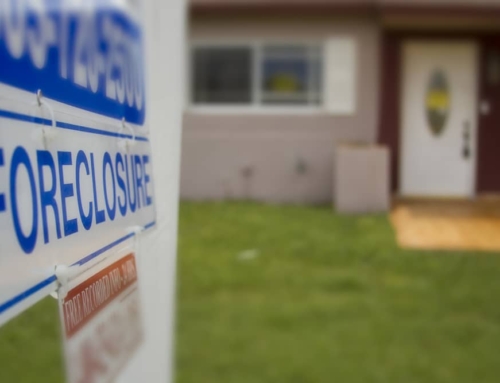Although they don’t like it, most home buyers seem to understand that trade-offs are part of the game of searching for a place to live.
Unless you have unlimited funds in your home buying war chest, you will usually have to give up some things you want in order to get everything you need.
But it’s one thing to intellectually understand the trade-off concept. It’s quite another to apply it to your own personal situation.
One couple is having a tough time making the adjustment. These thirty-something Bostonians would like to trade up from their first home to a larger home in a better neighborhood with better schools. Although they don’t yet have children, they’re hoping to start a family in the next couple of years.
But as they search from suburb to suburb, narrowing down their location choices, they’re shocked at how far their dollars don’t go.
“It seems to me that you should be able to buy a really nice home in a nice, close-in suburb for $300,000,” said the wife. “But we’re having a tough time finding something we can live with.”
Many home buyers suffer from unrealistic expectations. You want to believe your housing dollars, however much you have, will buy the house of your dreams. Unfortunately, dreams must be tempered by market realities: Your dollars will buy more in a less expensive neighborhood and less in a more expensive neighborhood.
Of course, buyers want it both ways: You want to buy more in the better neighborhood.
The Boston couple didn’t think they were asking for much. “We wanted four bedrooms, at least two baths, a nice yard, and a good school district in an established suburb that’s close to work,” said the wife.
Instead, this couple is finding that their $300,000 plus will buy them only 3 bedrooms and 1-1/2 baths in the suburb of their choice. If there are four bedrooms, they are tiny — some as small as 9’x9′ — and often arranged strangely.
The simple fact that they haven’t found a house they like after 9 months of searching says that this couple needs to compromise on what they want in a home. They have several options: They can choose a smaller home with fewer bedrooms and amenities; they can find a less expensive suburb; or they can buy a “fixer-upper,” a house that needs a bit (or a lot) more than token window dressings.
Another option is to increase the amount of money they’re willing to spend on their home. Unfortunately, if you already suffer from unrealistic expectations, spending more money means your expectations will scale upwards as well. It’s a dangerous spiral that can lead to a lifetime of housing disappointments.
How can you temper your expectations? The best way is to get out, into the market and see how much money it takes to purchase a home you can live with. Consider the following suggestions:
Ask your agent to give you a list of every home listed within your price range in the neighborhoods you’re interested in. There may be four houses, or forty. Drive by each one, discussing its amenities and size.
Arrange a day to see the interiors of at least five or seven of the most promising of these homes. If there aren’t that many in your price range, see whatever is on the market.
Visit open houses in the area each weekend, even those that are priced $10,000 to $20,000 more than you can afford. This should help you establish a price-to-amenities ratio for your future neighborhood.
Call FSBOs, even if you’re working with a broker. Sellers who try to sell their own homes (FSBO means “for sale by owner”) try to save the 6 to 7 percent sales commission. But, they may have under priced the market, or are in a hurry to sell. If you’re working with a buyer broker, see if the seller will pay a half commission in order to make the deal.
If you find a home that appears to have everything you want, but is more than you can afford, consider making a low-ball offer. To avoid offending the sellers, you may want to enclose a letter telling them how much you love their home and will treasure it for years to come.
While this may sound a little hokey, buyers often fail to realize how emotional the decision to sell can be. To some sellers, there are more important things than getting every red cent out of their home.
It doesn’t cost anything to make an offer. Meanwhile, the search for the perfect house at the right price continues.
Published: Feb 2, 2005






Leave A Comment